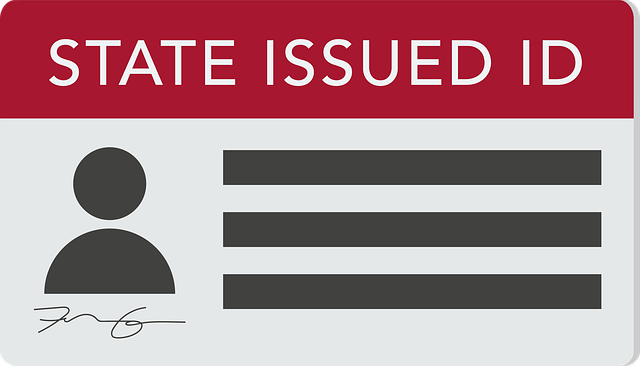Building business credit is one of the most critical steps for ensuring the long-term success of your business. A solid business credit profile opens doors to financing, enhances credibility, and ensures your financial health and stability. This guide walks you through understanding, establishing, and improving your business credit business to support your company’s growth.
Intro to Business Credit Business
What is Business Credit?
Business credit refers to the creditworthiness of a business, evaluated by lenders, creditors, and vendors to determine the risk of lending or extending credit to the business. Unlike personal credit, which is tied to an individual’s financial history, business credit is linked to the business itself.
This distinction allows businesses to build a credit profile that can lead to better loan terms, lower interest rates, and increased credit limits. A good business credit score is crucial for securing financing and establishing trust with suppliers and potential partners.
Why Separate Business and Personal Credit?
Separating business financing and personal credit is essential for protecting your personal assets and maintaining a healthy financial identity. When business loans and personal finances are commingled, it can lead to confusion and potential legal issues.
Business Loans
02


5
Average Review
Business Loans
- Provides data-driven financial solutions
- Loan amount: $15K - $1M
- Time in business: 12+ months
- $12.5K in monthly revenue
- Minimum credit score: 600
01
By keeping them separate, you reduce the risk of personal liability and ensure that your personal credit score is not affected by your business activities. Additionally, establishing a distinct business credit history can lead to better loan terms and increased credit limits, providing your business with more financial flexibility.

Understanding Business Credit History
Business credit history refers to the record of your company’s credit transactions and payment behavior. This record positive payment history is a critical measure lenders, creditors, and vendors use to evaluate your business’s creditworthiness.
Unlike personal credit, business credit is tied explicitly to your business and operates independently of available credit elsewhere. Personal credit reports reflect an individual’s management of credit obligations linked to their Social Security number, whereas business credit reports focus solely on the business’s financial activities. This separation allows your business to secure financing, get loans, negotiate favourable terms with suppliers, and attract investment without impacting your personal credit score.
Maintaining a good business credit history provides benefits such as access to higher credit limits, improved business financing and options, and an enhanced reputation with potential business partners. It’s vital to consistently manage your financial activities and prioritize timely payments to cultivate a strong credit profile.
Establishing Your Business Identity
The first step in building business credit is establishing your business as a separate legal entity. This involves several critical actions:
Register Your Business:
Register your company with your state’s Secretary of State office. Depending on your structure, you might choose to operate your company as an LLC, corporation, or other entity type.
Obtain an Employer Identification Number (EIN):
The IRS issues an EIN for tax purposes, but it also serves as your business’s equivalent of a Social Security number. An EIN is crucial for establishing a business credit file, as it connects your business’ account to its credit history and allows credit reporting agencies like Dun & Bradstreet, Experian, and Equifax to open and maintain your business credit file.
Open a Business Bank Account:
A business checking account separates your company’s finances from your personal accounts, ensuring accurate bookkeeping and tax reporting.
Get a Business Credit Card:
Opening a business credit card establishes your company’s business credit file, and builds a payment history.
Establish Contact Information:
Set up a business phone number, email address, and physical address (even if it’s a virtual office). List your business in directories to enhance credibility.
By following these steps, you establish a distinct business identity that helps small businesses build credibility and establish credit, with lenders and vendors.
Incorporate Your Business
Incorporating your business or forming a limited liability company (LLC) is a critical step in establishing a separate business credit history. By creating a separate legal entity, you distinguish your business from your personal identity, which helps protect your personal assets.
This separation is not only beneficial for legal and tax purposes but also for building a strong business credit profile. Incorporation signals to lenders and creditors that your business is a serious and stable entity, which can enhance your credibility and build business credit-worthiness.
Obtain an Employer Identification Number (EIN)
An Employer Identification Number (EIN) is a unique identifier assigned to your business by the Internal Revenue Service (IRS). It functions similarly to a Social Security number for your business. Obtaining an EIN is essential for opening a business bank account, filing taxes, and applying for your business credit cards.

This step is crucial in establishing a business credit history, as it helps separate your personal and business finances. An EIN not only facilitates smoother financial operations but also enhances your or small business name’s credibility with lenders and creditors.
By following these steps, you lay a solid foundation for building a robust business credit profile. Establishing a separate business identity, incorporating your new business name, and obtaining an EIN are all critical actions that contribute to a strong and credible business credit history.
Building Your Business Credit
Developing strong small business owners’ credit requires a combination of strategy, discipline, and consistency. Business credit reporting agencies play a crucial role in this process by maintaining small business owners’ credit files and recording payment histories reported by vendors and creditors. Below are key steps to take:
1. Establish Trade Lines with Suppliers
Working with suppliers and credit agencies who extend trade credit is one of the most effective ways to build your business credit. Trade credit allows you to purchase or loan for goods or services with a promise to pay later, creating a repayment history.
- Build Relationships with Vendors: Choose suppliers willing to report your payments to business credit bureaus such as Dun & Bradstreet, Experian, and Equifax.
- Pay Invoices Promptly: Early or on-time payments demonstrate your financial reliability and positively impact your credit score.
- Start Small: Establish trade credit with a few vendors and expand as your credit profile strengthens.
2. Get a Business Credit Card
Obtaining a business credit card is another essential step in building your business credit.
- Choose the Right Card: Select a credit card that reports to business credit bureaus and offers terms that align with your spending needs.
- Use Responsibly: Avoid maxing out your credit limit. Instead, maintain a low credit utilization ratio (preferably below 30%).
- Pay on Time: Consistently paying off balances on or before the due date is crucial for maintaining good credit.
Business credit cards not only build credit but also provide a convenient way to manage expenses and track spending.
Business Loans
02


5
Average Review
Business Loans
- Provides data-driven financial solutions
- Loan amount: $15K - $1M
- Time in business: 12+ months
- $12.5K in monthly revenue
- Minimum credit score: 600
01
Managing Your Business Finances
Sound financial management is fundamental to building and maintaining good business credit.
Separate Business and Personal Finances:
Keeping your business finances separate ensures clear financial reporting and prevents personal or financial health issues from impacting your business.
Maintain Accurate Records:
Use accounting software or hire a bookkeeper to track income, expenses, and cash flow. This discipline allows you to make informed financial decisions.
Pay Bills on Time:
Timely payments are a cornerstone of a strong credit profile. Automate payments whenever possible to avoid missed deadlines.
Budget and Save:
Plan your expenses carefully and build a financial cushion for unexpected challenges.
Good financial habits not only make financial transactions and improve your creditworthiness but also provide stability and peace of mind as your business grows.
Monitoring Your Business Credit Report
Regularly monitoring your business credit reports is vital for identifying potential issues and ensuring accuracy.
Check for Errors:
Mistakes on your credit report, such as incorrect payment records or unauthorized accounts, can damage your credit score. Dispute any inaccuracies promptly with the reporting agency.
Stay Informed:
Understand how credit bureaus calculate your score and what factors influence it. Payment history, credit utilization, and credit age are among the most significant considerations.
Monitor Changes:
Use services offered by credit bureaus to track your credit profile. Some bureaus provide alerts when changes occur, such as new inquiries or accounts added.
Proactive monitoring helps you stay on top of your small business loans and credit and address concerns before they escalate.
Understanding Business Credit Scores
Business credit scores range from 0 to 100, with higher scores reflecting better creditworthiness. These credit scores are used by lenders and vendors to assess risk and determine terms of credit.
Key factors affecting your score include:
- Payment History: Timely payments are the most critical factor influencing your credit score.
- Credit Utilization: High credit utilization can signal financial stress, while low utilization suggests responsible credit management.
- Credit Age: A longer credit history demonstrates reliability and stability.
By understanding these factors and prioritizing positive behaviors, you can steadily improve your credit score.
Why Good Business Credit Matters
Strong business credit provides numerous advantages:
- Access to Financing: Lenders are more likely to approve loans or lines of credit for businesses with good credit.
- Favorable Terms: Good credit can result in lower interest rates, higher credit limits, and extended repayment terms.
- Increased Credibility: Vendors and partners view businesses with strong credit profiles as reliable and stable.
Additionally, a full credit card bill and good business credit score protects your personal credit by allowing your small business to operate independently.
Building business credit is a long-term investment in your company’s success. By understanding how business credit works, establishing your business identity, establishing build business credit at first, and maintaining sound financial practices, you can create a strong credit profile.
Regularly monitor your credit report, build trade lines, and use credit responsibly to cultivate a good business credit score and reputation for reliability. With a good business credit score, you can secure financing, expand your business, and enjoy greater financial stability.


 Read More
Read More 





One Response